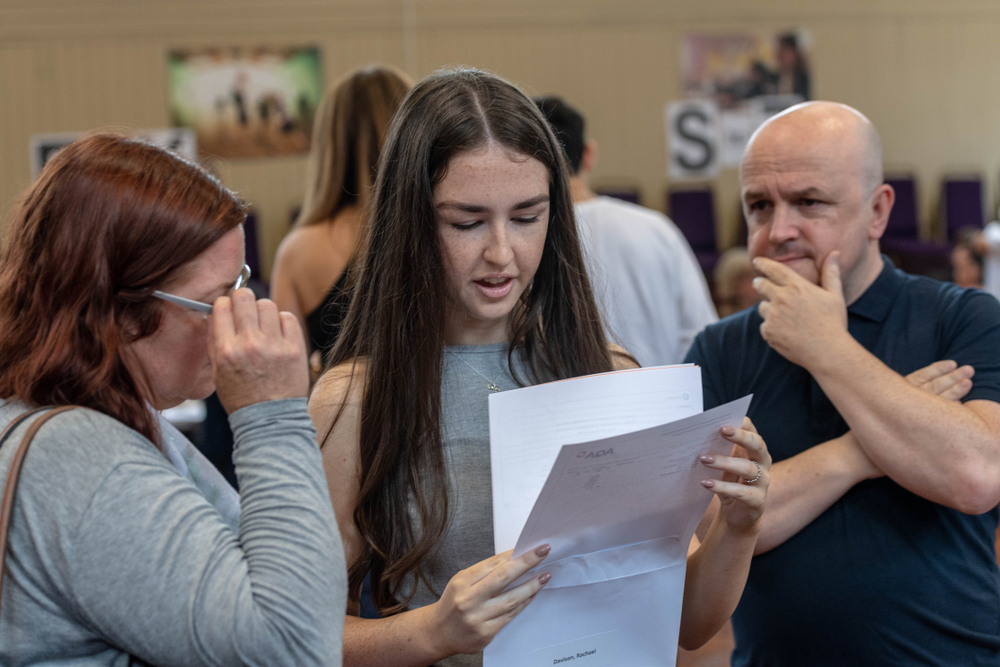
Family psychotherapist Fiona Yassin of The Wave Clinic has shared six ways parents or carers can help their child manage a stressful A-level results day, and the days following.
If your child does not get the results they were hoping for, it’s important to avoid diving straight into the future. When we move into the future on the back of bad news, what we tend to do is predict a bleak future as well. So, if the message your child tells themselves on results day is “I didn’t do well”, “I’m a failure” or any other translation of that, they may predict a future for themselves that is also negative or that life will “never be good” or they will “never succeed”.
Your child may also jump ahead and start planning their next phase if they get good results, too. However, this can take away from the joy of the moment. Encourage your child to stay present and enjoy what they have achieved.
A-level results day can be an emotional time. There may be disappointment, anger, and sadness for your child. It’s really important you try to hear them and allow emotions to simply be in that moment. Instead of trying to fix your child’s feelings, try to validate them. Once the dust has settled and everyone has been able to feel what they’re feeling, then you can start to plan the next steps.
Your child may be part of social media groups where everyone is sharing their results. No matter how bad or how well your child has done, this is not helpful for them to be a part of. It can encourage an unhealthy jealousy or competitiveness and may leave your child feeling hurt if they have not achieved their preferred grades. Encourage them to stay out of these groups on the day and days after results day if they are finding the experience stressful or anxiety inducing.
It’s really important to acknowledge that, no matter how much support you’ve given your child in the run up to their exams, these are not your exam results. These results belong to your young person and it’s important you stay in your lane at this point. Bear witness and be there, but try not to take it on as something that’s your own. Do not start discussing plan B and C on exam day. Sometimes kids hear parents planning out loud and translate it as a lack of trust in their faith or ability to succeed.
When we’re stressed or anxious we tend to eat differently, sleep differently and can be more snappy. To help your child manage these emotions, make sure they keep a good routine and ensure they eat regularly so their brain can function well and problem solve. Add structure and predictability to their day by planning activities for the days ahead and agreeing to sit down together to eat at mealtimes.
There’s something wonderful in our brain makeup called mirror neurons. Mirror neurons get us to copy and imitate actions or emotions. One of the great things to remember in all parenting, not just on results day, is if you model and show consistent, clear and calm behaviours, your child will copy and imitate these actions too.
Fiona Yassin is the founder and clinical director at The Wave Clinic. She is a U.K. and International registered Psychotherapist and Accredited Clinical Supervisor (U.K. and UNCG). Fiona is EMDR trained (EMDRIA) and practising Trauma therapist. Fiona is a member of the International Chapter of IAEDP, trained in CBTe (Oxford Group), FREED (King’s College, London), TF-CBT, RO-DBT, GPM and has extensive experience in the treatment of Eating Disorders and Borderline Personality Disorder. Fiona has further specialist training in the treatment of families in High Conflict Divorces and in Psychiatry across the female lifespan. Fiona is a Fellow of APPCH, a senior accredited Addiction Professional and member of The Association of Child Protection Professionals.
